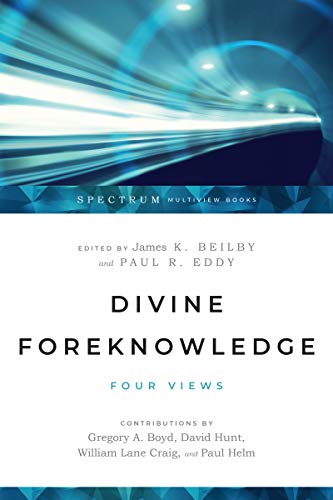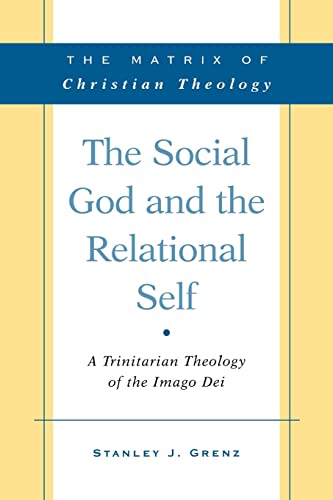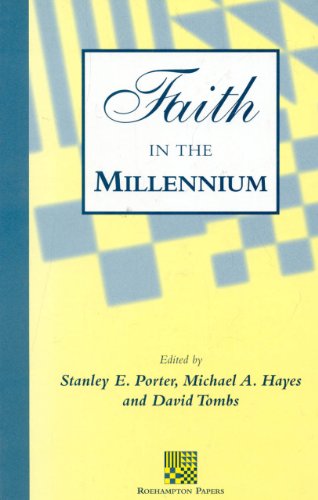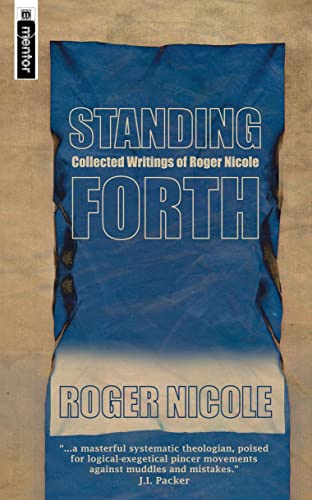Volume 28 - Issue 3
Boring Ourselves to Life
By Carl TruemanAs I write, Philadelphia is enduring the worst snowstorm since 1996, with upwards of twenty inches of snow predicted to fall within the next twenty-four hours. While I hate having to spend time clearing the pavement outside my house I must say that I am absolutely delighted that the storm has given me the unexpected pleasure of having a day off work to take my family sledging.
Yet the storm has been instructive to me in more than just the area of my winter sport skills. One of the most amusing sights on the television in recent days has been that of the queues of people in the shops stocking up on winter essentials in case they are trapped in their homes for any length of time. Now, by ‘essentials’, I do not mean food, milk and other necessities. This is America after all; gargantuan consumption is virtually compulsory; and the average American refrigerator routinely carries enough supplies to feed the whole of Africa for a month, or the typical western family for at least a week. No, I’m referring to American essentials, and the queues I am speaking of are the lines of people at the local video stores who, the TV reporter informs me, are stocking up on movies lest they get trapped in their homes and become bored.
My initial response to this gem of information was to burst out laughing. Perish the thought that any of these people should be so deprived of prepackaged entertainment that they might have to read a book, or (horror of horrors!) actually talk to other members of their families. Yet, on serious reflection, I realise the phenomenon is a very telling one, underlining once again that we in the West have become a decidedly entertainment-based culture. With no problems regarding supplies of essentials, the greatest fear that we have at any time of potential crisis is that we might be deprived of being amused for a whole forty-eight hours.
The entertainment world is a dominant factor in our consumer society. As both Marxists and detectives in American pulp fiction well know, if you want to understand any given situation, you should follow the money. Thus, if you want to find out what is important in any given society, you should simply look to see where the money is—and there is surely no doubt where the cash is to be found in the West of today: pop stars, movie actors, sports figures—these are the people who earn the real money in our world. Love him or hate him, the President of the USA does basically shoulder responsibility for the safety and stability of the world as a whole—but he earns peanuts compared to even a modestly talented footballer or film star; and the British public regularly expresses outrage at the exorbitant pay-rises of industry chiefs (an outrage I share, by the way) while winking at the whopping salaries paid to teenage sport and pop stars—salaries which help to price event tickets out of the reach of the ordinary citizen—and the sickening photo-shoot fees paid to some sleazy celebrity getting married for the umpteenth time. It is a strange world where we begrudge the PM a six-figure salary while continuing to patronise magazines which pay himbos and bimbos hundreds of thousands of pounds for meaningless trash.
Why do we do it? There are probably numerous reasons, but a prime factor has to be the useful role that we see celebrities playing in our society. They entertain us, and that, we think, is a good thing, worth paying for—indeed worth paying more for than for good government and better public services. Why do we think this way? One interpretation that is offered is that there is, in fact, a spiritual dimension to this culture of celebrity and entertainment. Sports figures, pop stars, celebrities—they offer us meaning and fulfilment, albeit vicariously, in a world where the old gods of traditional religions have failed. Thus, at its apex, this culture produces new messianic figures, such as Elvis or John Lennon and icons, such as James Dean, David Beckham, and Princess Diana. The deification of these figures in modern culture, it is argued, indicates that there is something innate in human beings that strives for transcendence, for something beyond the routine of everyday life.
That is one take on the phenomenon, and one that enjoys considerable currency in some evangelical quarters. There is, however, another way of approaching this matter, a way which receives its clearest articulation in the thought of the great French thinker, Blaise Pascal. Pascal lived in a world which was marked both by its incredible busy-ness and by its appetite, at least among the social elite, for pleasure and entertainment. Pascal categorised this phenomenon as distraction. Distraction is the production of entertainment for the purpose of taking one’s mind off the deeper realities of life. In the famous paragraph in the Pensées, he asks why even kings have trivial entertainments organised for their amusement. He can understand, he says, why poor people might enjoy the odd dance to distract them from the miserable drudge of their daily lives, but why should a king, glorious, powerful, surrounded by proofs of his own greatness, need trivial entertainment? The answer is that, left to himself with nothing to distract him, he will think about himself and the reality of the death that awaits him.1
Surely this is precisely what is going on in the contemporary culture of entertainment and celebrity. Why do we pay sports stars, actors, and the various airheads that populate the airwaves more than we pay our political leaders? We do this because they help to take our minds off the deeper, more demanding truths of life, particularly the one great and ultimately unavoidable truth: death. It is not just the entertainment industry that does that: the huge amount of money expended on the health industry in general and the cosmetic surgery industry in particular also point us towards the basic drive in society to avoid this one at all costs. As Pascal himself says, ‘It is easier to put up with death without thinking about it, than with the idea of death when there is no danger of it.’2
Pascal goes further, arguing that not just entertainment, or distraction, subserves this greater end of self-deception; even the social and bureaucratic clutter of our everyday commerce in this world has a similar significance. This he describes not as distraction but as ‘diversion’. Let me quote him at length on this:
From childhood onwards people are entrusted with the care of their honour, their property, their friends, and even with the property of their friends. They are showered with duties, the need to learn languages and exercises. They are led to believe that they will never be happy if their health, honour, and wealth, and those of their friends, are not in a satisfactory state, and that if one element is amiss they will be unhappy. So they are given offices and duties which keep them hectically occupied from daybreak.3
This ties in with distraction in that the two work together to fill the lives of men and women with ephemeral trivia so that, whatever time is left after such diversions is to be devoted to entertainment and pleasure. To express the idea in modern form: once you have spent most of your day dealing with the nightmare that is the modern workplace, you get home and switch on your TV or go to the movies, being entertained or projecting some fantasy onto a celebrity figure. Then when you fear being trapped in your house by snow, for example, your first concern is to make sure that the supply of pre-packaged entertainment does not dry up, lest the boredom of your enforced isolation force you to think about your mortal condition. Only in this way can you avoid facing up to your own mortality. Pascal ends the passage with a phrase which, literally translated, says ‘How hollow and full of excrement is the heart of man’, meaning ‘How we fill our lives with rubbish instead of reflecting upon real truths’. We would rather spend time and money on junk than spend a single moment thinking about where our lives are really heading.
Pascal is not, of course, saying that entertainment is wrong in and of itself, any more that hard work or concern for the wellbeing of one’s family is illegitimate. Though he himself lived a fairly rigorous ascetic life, his point is not to outlaw all pleasure, but rather to criticise the use of entertainment as a way of distracting men and women from the realities of life. Pleasure and fun are good things; but when they become means to keep us from facing up to the truths of our creaturely existence, they are profoundly bad for us.
This approach puts a very different complexion on the modern world: the obsession with sex, with drugs, with celebrity worship, with weird and wonderful cults, and even with conspicuous consumption and shopping. These are not signs of some deep quest for spiritual meaning, of attempts to fill some religious void in lives that we somehow know are incomplete in and of themselves; rather than being hopeful signs of humanity’s innate spirituality, they are in fact the latest attempts of humanity to avoid precisely any form of true spirituality. They represent not ill-informed striving after truth and meaning but pathetic efforts to pretend that we are not going to die and then to face the judgement. They are, in short, acts which seek to suppress the truth in unrighteousness and to avoid the claims of Christ, in whom is revealed the full reality both of God’s judgement and his grace.
This is where boredom is so important. Stripped of diversions and distractions, individuals have no choice but to reflect upon themselves, the reality of their lives and their future deaths. Human culture has proved adept over the centuries at avoiding the claims of Christ and the truths of human existence revealed in him. The modern bureaucratic state, the instability and insecurity of the work environment, the entertainment industry and the consumer society in which our modern Western affluence allows us to indulge all play their part in keeping us from reflecting upon reality as revealed to us by God. Let us take time to be bored, to strip away from ourselves the screens we have created to hide the real truths of life and death from our eyes. Let us spend less time trying to appropriate culture for Christianity and more time deconstructing culture in the light of Christ’s claims on us and the world around us. Only then will we truly grasp the urgency of the human predicament. Oh and by the way, if it snows again, don’t rent a video; read a copy of Pascal’s Pensées.
1 Pascal, Blaise, Pensées, trans. Honor Levi (Oxford: World’s Classics, 1995), 48–49.
2 Pensées, 49.
3 Pensées, 49.
Carl Trueman
Carl Trueman is Professor of Biblical and Religious Studies at Grove City College in Grove City, Pennsylvania.






